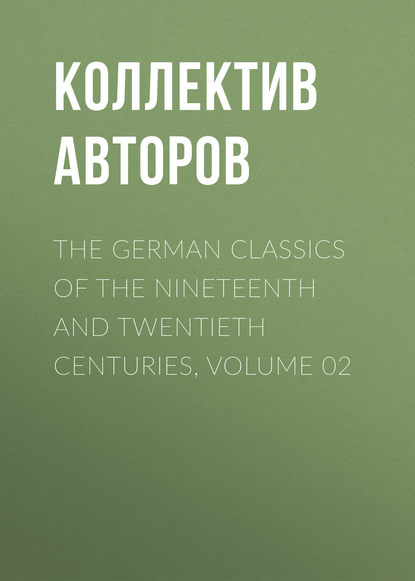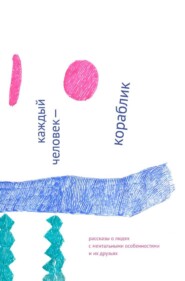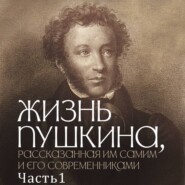По всем вопросам обращайтесь на: info@litportal.ru
(©) 2003-2025.
✖
The German Classics of the Nineteenth and Twentieth Centuries, Volume 02
Настройки чтения
Размер шрифта
Высота строк
Поля
These wishes, especially directed toward his friends in the North, were awakened anew by the Peace of Hubertusbury (Feb., 1763). It would have been his pride to present himself before the great king who had already honored him with an offer to enter his service; to see again the Prince of Dessau, whose exalted, reposeful nature he regarded as a gift of God to the earth; to pay his respects to the Duke of Brunswick, whose great capacities he well knew how to prize; to praise in person Minister of State von Münchausen, who had done so much for science, and to admire his immortal foundation at Göttingen; to rejoice again in the lively and intimate intercourse with his Swiss friends—such allurements filled his heart and his imagination; with such images was his mind so long occupied that he unfortunately followed this impulse and so went to his death.
He was devoted body and soul to his Italian lot to such an extent that every other one seemed insufferable to him. On his former journey, the cliffs and mountains of Tyrol had interested, yea, delighted him, and now, on his return to the fatherland, he felt terrified, as if he were being dragged through the Cimmerian portal and convinced of the impossibility of continuing his journey.
DEPARTURE
And thus upon the highest pinnacle of happiness that he could himself have wished for, he departed this earth. His fatherland awaited him, his friends stretched their arms toward him; all the expressions of love which he so deeply needed, all testimonials of public honor, which he valued so highly, awaited his appearance, to be heaped upon him. And in this sense we may count him happy, that from the summit of human existence he ascended to the blessed, that a momentary shock, a sudden, quick pain removed him from the living. The infirmities of old age, the diminution of mental power, he did not experience; the dispersal of the treasures of art, which he had foretold, although in another sense, did not occur before his eyes. He lived as a man and departed hence as a complete man. Now he enjoys in the memory of posterity the advantage of appearing only as one eternally vigorous and powerful; for in the image in which a man leaves the earth he wanders among the shadows, and so Achilles remains for us an ever-striving youth. That Winckelmann departed so early, works also to our advantage. From his grave the breath of his power strengthens us, and awakens in us the intense desire always to continue with zeal and love the work that he has begun.
MAXIMS AND REFLECTIONS OF GOETHE[5 - Permission The Macmillan Co., New York.]
TRANSLATED BY BAILEY SAUNDERS
There is nothing worth thinking but it has been thought before; we must only try to think it again.
How can a man come to know himself? Never by thinking, but by doing. Try to do your duty, and you will know at once what you are worth. But what is your duty? The claims of the day.
The longer I live, the more it grieves me to see man, who occupies his supreme place for the very purpose of imposing his will upon nature, and freeing himself and his from an outrageous necessity—to see him taken up with some false notion, and doing just the opposite of what he wants to do; and then, because the whole bent of his mind is spoilt, bungling miserably over everything.
In the works of mankind, as in those of nature, it is really the motive which is chiefly worth attention.
In Botany there is a species of plants called Incompletæ; and just in the same way it can be said there are men who are incomplete and imperfect. They are those whose desires and struggles are out of proportion to their actions and achievements.
It is a great error to take oneself for more than one is, or for less than one is worth.
From time to time I meet with a youth in whom I can wish for no alteration or improvement, only I am sorry to see how often his nature makes him quite ready to swim with the stream of the time; and it is on this that I would always insist, that man in his fragile boat has the rudder placed in his hand, just that he may not be at the mercy of the waves, but follow the direction of his own insight.
If I am to listen to another man's opinion, it must be expressed positively. Of things problematical I have enough in myself.
Piety is not an end, but a means: a means of attaining the highest culture by the purest tranquility of soul. Hence it may be observed that those who set up piety as an end and object are mostly hypocrites.
Reading ought to mean understanding; writing ought to mean knowing something; believing ought to mean comprehending; when you desire a thing, you will have to take it; when you demand it, you will not get it; and when you are experienced, you ought to be useful to others.
The stream is friendly to the miller whom it serves; it likes to pour over the mill wheels; what is the good of it stealing through the valley in apathy?
Theory is in itself of no use, except in so far as it makes us believe in the connection of phenomena.
"Le sens common est le génie de l'humanité." Common-sense, which is here put forward as the genius of humanity, must be examined first of all in the way it shows itself. If we inquire the purpose to which humanity puts it, we find as follows: Humanity is conditioned by needs. If they are not satisfied, men become impatient; and if they are, it seems not to affect them. The normal man moves between these two states, and he applies his understanding—his so-called common sense—to the satisfaction of his needs. When his needs are satisfied, his task is to fill up the waste spaces of indifference. Here, too, he is successful, if his needs are confined to what is nearest and most necessary. But if they rise and pass beyond the sphere of ordinary wants, common-sense is no longer sufficient; it is a genius no more, and humanity enters on the region of error.
There is no piece of foolishness but it can be corrected by intelligence or accident; no piece of wisdom but it can miscarry by lack of intelligence or by accident.
Justice insists on obligation, law on decorum. Justice weighs and decides, law superintends and orders. Justice refers to the individual, law to society.
The history of knowledge is a great fugue in which the voices of the nations one after the other emerge.
If a man is to achieve all that is asked of him, he must take himself for more than he is, and as long as he does not carry it to an absurd length, we willingly put up with it.
People whip curds to see if they cannot make cream of them.
Wisdom lies only in truth.
When I err, every one can see it; but not when I lie.
Before the storm breaks, the dust rises violently for the last time—the dust that is soon to be laid for ever.
Men do not come to know one another easily, even with the best will and the best purpose. And then ill-will comes in and distorts everything.
In the world the point is, not to know men, but at any given moment to be cleverer than the man who stands before you. You can prove this at every fair and from every charlatan.
Not everywhere where there is water, are there frogs; but where you have frogs, there you will find water.
In the formation of species Nature gets, as it were, into a cul-de-sac; she cannot make her way through, and is disinclined to turn back. Hence the stubbornness of national character.
Many a man knocks about on the wall with his hammer, and believes that he hits the right nail on the head every time.
Those who oppose intellectual truths do but stir up the fire, and the cinders fly about and burn what they had else not touched.
Those from whom we are always learning are rightly called our masters; but not every one who teaches us deserves this title.
It is with you as with the sea: the most varied names are given to what is in the end only salt water.
It is said that vain self-praise stinks in the nostrils. That may be so; but for the kind of smell which comes from unjust blame by others the public has no nose at all.
There are problematical natures which are equal to no position in which they find themselves, and which no position satisfies. This it is that causes that hideous conflict which wastes life and deprives it of all pleasure.
Dirt glitters as long as the sun shines.
He is the happiest man who can set the end of his life in connection with the beginning.
A state of things in which every day brings some new trouble is not the right one.
The Hindoos of the Desert make a solemn vow to eat no fish.
To venture an opinion is like moving a piece at chess it may be taken, but it forms the beginning of a game that is won.
Truth belongs to the man, error to his age. This is why it has been said that, while the misfortune of the age caused his error, the force of his soul made him emerge from the error with glory.
I pity those who make much ado about the transitory nature of all things and are lost in the contemplation of earthly vanity: are we not here to make the transitory permanent? This we can do only if we know how to value both.
A rainbow which lasts a quarter of an hour is looked at no more.
Faith is private capital, kept in one's own house. There are public savings-banks and loan-offices, which supply individuals in their day of need; but here the creditor quietly takes his interest for himself.
During a prolonged study of the lives of various men both great and small, I came upon this thought: In the web of the world the one may well be regarded as the warp, the other as the woof. It is the little men, after all, who give breadth to the web, and the great men firmness and solidity; perhaps, also, the addition of some sort of pattern. But the scissors of the Fates determine its length, and to that all the rest must join in submitting itself.
Truth is a torch, but a huge one, and so it is only with blinking eyes that we all of us try to get past it, in actual terror of being burnt.
The really foolish thing in men who are otherwise intelligent is that they fail to understand what another person says, when he does not exactly hit upon the right way of saying it.
One need only grow old to become gentler in one's judgments. I see no fault committed which I could not have committed myself.

















